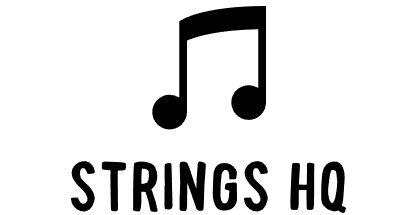The emotional range of the violin is astounding! It can make you feel warm and fuzzy one minute, and in the next, you’re feeling melancholy and sad.
This is why movie directors exploit this power violins have over us when they want us to feel heartbreak and pain.
Today, I’m doing a deep dive into this topic to answer one question: why do violins make me cry? If you’ve ever experienced this downstream of emotions, you’re in the right place.
Summary
Violins are versatile instruments capable of evoking a wide range of emotions. When the Violin is played slowly in a minor key, it sounds incredibly sad. The timbre of the Violin also aligns closely with creating sad music. However, not all Violin music is sad and there are plenty of happy, upbeat works composed for the Violin.
Table of Contents
Why Do Violins Sound Sad?
Based on a new study, whether you cry when you listen to the violin or not depends on your personality. It also depends on which emotions you’re grappling with at that particular moment.

That said, it’s important to bear in mind that the whole point of music is to evoke emotions. So, don’t be surprised or shocked by the fact that you’re moved when you listen to different instruments, particularly the violin.
Modes
Modes involve how the different notes are put in order and arranged. It’s this arrangement that makes up the chords that we hear. Hence, different chords lend themselves to how we perceive the tonality of the music.
In other words, the way the progression chords are put together gives each piece of music its color or feel, aka the tonality. This makes a piece of music either ‘feel’ jubilant and bubbly or sad and melancholy.
It’s worth mentioning that a low pitch usually represents the latter. Especially if played solo, violins do a great job of creating a dark timbre.
Case in point, it could be that the choice of scales and chords used in a particular piece of music is what makes the violin sound so sad.
Major and Minor Keys
Composers use major keys to give off a happy, merry tune. Alternatively, minor keys, in general, are often known for their sad, melancholy sounds.
So, does this have to do with the inherent make-up of each note? Or are these feelings forced upon us through our culture?
To help answer that question, scientists at Duke University compared the profiles of various acoustic frequencies of different Western classical music pieces. They also looked at Finnish folk songs.
These acoustic frequencies, referred to as ‘sound spectra,’ provided a fascinating look into how music resembles our speech patterns.
For example, major keys are similar to excited, happy, upbeat speech. They’re louder, faster, and typically characterized by an upbeat tempo.
In addition, the study found out that minor keys are basically anguished notes. Because of their slower beats and more mellow tunes, they’re looked at as the ‘sad’ keys. It’s been embedded in our culture ever since Deryck Cooke‘s book The Language of Music.
Tempo
The faster the tempo, the happier the emotions. So, for some reason, when we hear music with a quick beat, we feel excited and alive.
Then, as you might have guessed, violin music with a slow tempo does the opposite. Instead, they evoke emotions of sadness, gravity, and gloom.
Experts believe that a sad tempo is between 50 and 80 beats per minute (BPM).
Composers use this phenomenon to bring about broad emotional responses in their listeners. They want the audience to experience as much as possible, so they use different beats and rhythms throughout their works.
The Violinist
You’ve just read about three reasons why violins are sad. Although, there’s one quality we’ve yet to discuss: how the performer plays the notes.
When the violinist becomes familiar with the notes and really immerses into the emotions behind them, they emanate all that through their playing. So, if the violinist is capable enough, they can make anything sound sad, even Happy Birthday to You.
Now, imagine if they were playing a somber piece, like Thomaso Vitali’s Chaconne in G minor. It’s undoubtedly moving and heart-breaking.
Is All Violin Music Sad?
Let’s circle back to the study I mentioned earlier. Over 63% of those who participated in that study said they felt sad when listening to violin music.
On the other hand, the additional 36% said they were moved to tears because they felt a great deal of awe and euphoria. So much so in fact that they were moved to tears when they listened to the violin.
So, is all violin music sad? No, it’s not.
Some pieces are lively and cheerful, like Mendelssohn’s Violin Concerto in the 3rd Movement. Many have hailed Mendelssohn’s genius, and once you hear this piece, you’ll know why. It has a light, exuberant feel about it accompanied by a sense of cheerfulness you’ll rarely find in violin music.
That said, it’s more common to find emotional violin music than happy ones. Interestingly, it’s not just about the music.
Research shows that when we hear a piece of music, our brains start bringing up images, details, and memories associated with it. All these combined can trigger some pretty powerful emotions.
In other words, it’s not only the notes making us sad; it’s how we interpret them.
Is the Violin the Saddest Instrument?
Researchers put together a list of Mean Sadness Frequency (SD) based on two factors: sad music and the instruments producing them.
According to this scale, the two saddest instruments are the cello and the violin. So, the violin isn’t the saddest instrument, just the second saddest!
However, remember that sad music and instruments that play sad music are two distinct factors. In fact, musicians know there are no ‘sad’ instruments. Instead, it’s how notes are grouped and how the composer intended the piece.
Then, combine that with the expressive qualities of the violinist. Finally, when you hear it, your feelings will respond accordingly.
For example, just because the violin can play emotional tunes doesn’t mean it’s a ‘sad’ instrument. By changing the tempo, chords, and arrangement, a composer can turn the violin from a sad instrument into an upbeat and happy instrument.
What Is the Saddest Violin Music?
We now know the different features that make violin music sad. First, there’s the dark timbre that evokes a somber mood.
Then, there’s the low pitch and slow tempo that tug at your heartstrings. It’s hard not to shed a tear or two.
To help prove this point, I rounded up the five saddest violin music of all time. So, get the tissues ready.
Violin Concerto (2nd Movement) by Pyotr Illyich Tchaikovsky
Sadly, Tchaikovsky suffered from recurring bouts of depression all his life. He composed his Violin Concerto in 1878 as he was recovering from another depression attack.
It has a sweet yet somber tone in a slow triple meter. Also, being played in G minor amplifies the feeling of melancholy even more.
Theme from Schindler’s List by John Williams
This 1993 film score is believed to be the finest in recent decades, earning John Williams a prestigious Oscar. Through this main theme, Williams does a great job composing a highly sensitive piece.
It may seem simple and straightforward. Though, the way it’s written is meant to evoke such intense emotions that even Williams himself got choked up the first time he heard it.
Partita No. 2 in D Minor by Johann Sebastian Bach
Bach composed many astounding pieces of music for the violin. Partita No. 2 is one of his best, mainly because it features a sense of architectural balance and harmony.
Written in 1723, this piece comes as part of Bach’s compositional cycle, consisting of several sonatas and partitas. These small pieces were then assembled into more extensive works of music.
Spiegel im Spiegel by Arvo Pärt
Spiegel im Spiegel is translated as ‘Mirror in Mirror,’ this is one of Arvo Pärt’s most famous compositions. It evokes feelings of meditation or being in a trance.
Moreover, the melody consists of a tonic triad or a group of three notes repeated several times. As a result, the audience feels that the melody bounces back and forth, like images reflected in a mirror.
Nigun by Ernest Bloch
Ernest Bloch is considered to be one of the greatest composers in history. Born in Switzerland, he’s the first Jewish composer of the modern world. Accordingly, his music often reflects Jewish themes.
Nigun is inarguably one of his best. Both heartwarming and emotional, Bloch wrote it in dedication to his mother.
Conclusion
Music is a powerful medium. It can make us feel happy, then sad, then anxious just by changing around a few notes here and there.
I now understand that there’s more to one answer to my question: why do violins make me cry? Still, I have to admit that It’s a pretty exciting concept. Just by listening to a few chords, I feel so deeply that it makes me weep.
That only attests to how powerful that particular violin player must be to channel all those emotions to us, the listeners. However you feel about the violin, there’s no denying its achingly sweet sound that makes it the perfect instrument for expressing profound emotions.
